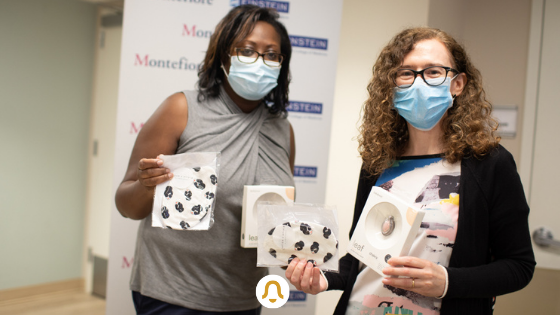There is a growing awareness surrounding the complications and complexities of pregnancy and childbirth. There is also greater discourse around post-natal depression with celebrities like model Chrissy Teigen and singer Adele speaking out about their experiences.
Post-natal depression as a concept is not a rare occurrence and is estimated to affect the mothers of up to 400,000 newborn infants each year in the United States. While more information is being made available and more awareness is growing, there is still much that needs to be done to support women who suffer from post-natal depression.
Bellabeat Takes a Stand Against Post-Natal Depression
One of the latest happenings with regards to combating post-natal depression comes from Bellabeat, a San Francisco-based wellness company. The company has, since its inception, been heavily focused on women’s wellness and specifically, closing the existing wellness gap between men and women.
The company notably launched an initiative that ethically collected user data regarding menstrual cycles in order to curate wellness programs for its users. Now, Bellabeat has announced a $10 million fund that will be used to combat post-natal depression among mothers. Details regarding the fund have also been made public.
The fund in question is intended to be deployed to selected candidates over the course of a year and also serves as a call to action to various organizations. Its goal is also to draw more attention to the issue and create incentives for organizations, clinics, and so on to seek out solutions to the problem for the general population.
The management of Bellabeat has pointed out that post-natal depression is often diagnosed too late despite affecting 3 in 10 new mothers. As a result of this, many women who suffer from postnatal depression often do not ever receive the help they need or suffer significant trauma in the process of doing so.
It is this information that has informed Bellabeat’s new innovation, which also plans to use ethically-sourced user data to predict the likelihood of post-natal depression before it occurs. This sort of resource will be a gamechanger for mothers as it does not wait until the depression occurs to diagnose and provide wellness resources. Besides the work that Bellabeat is doing itself to combat post-natal depression, its current fund will also support innovations, research, and promising solutions within the medical field that could be of benefit to mothers.
These solutions, once tried and tested, will be implemented into Bellabeat’s current wellness platform that is used by over 8 million women to access personalized and curated wellness resources. This means that millions of women will have access to potentially life-saving resources that will make pregnancy and motherhood that much easier.
All candidates that apply to the fund will be reviewed by Bellabeat’s dedicated review team and a team of scientists will determine what innovations need additional funding from Bellabeat as well as which ones are suitable to be onboarded on the Bellabeat platform.
The Need for Women’s Wellness
Many consumers do not see wellness as a necessarily gendered concept but the existence of the wellness gap shows that women are being underrepresented, even as they make up a majority of caregivers worldwide. This is why the wellness industry is starting to innovate and provide more products and services specific to women’s needs.
Take Bellabeat’s Ivy, a piece of wearable wellness technology that tracks resting heart rate, respiratory rate, sleep quality and duration, menstrual cycle, as it is worn and produces comprehensive reports as well as recommendations for users. Bellabeat has also partnered with Ede Frecska, who specializes in innovative psychotherapies that benefit women.
These sorts of projects and services mean that women’s issues will be properly addressed instead of being swept under the carpet. All in all, the wellness sector is more female-focused and consumers are all the better for it.


